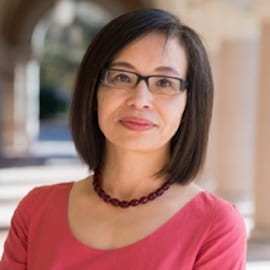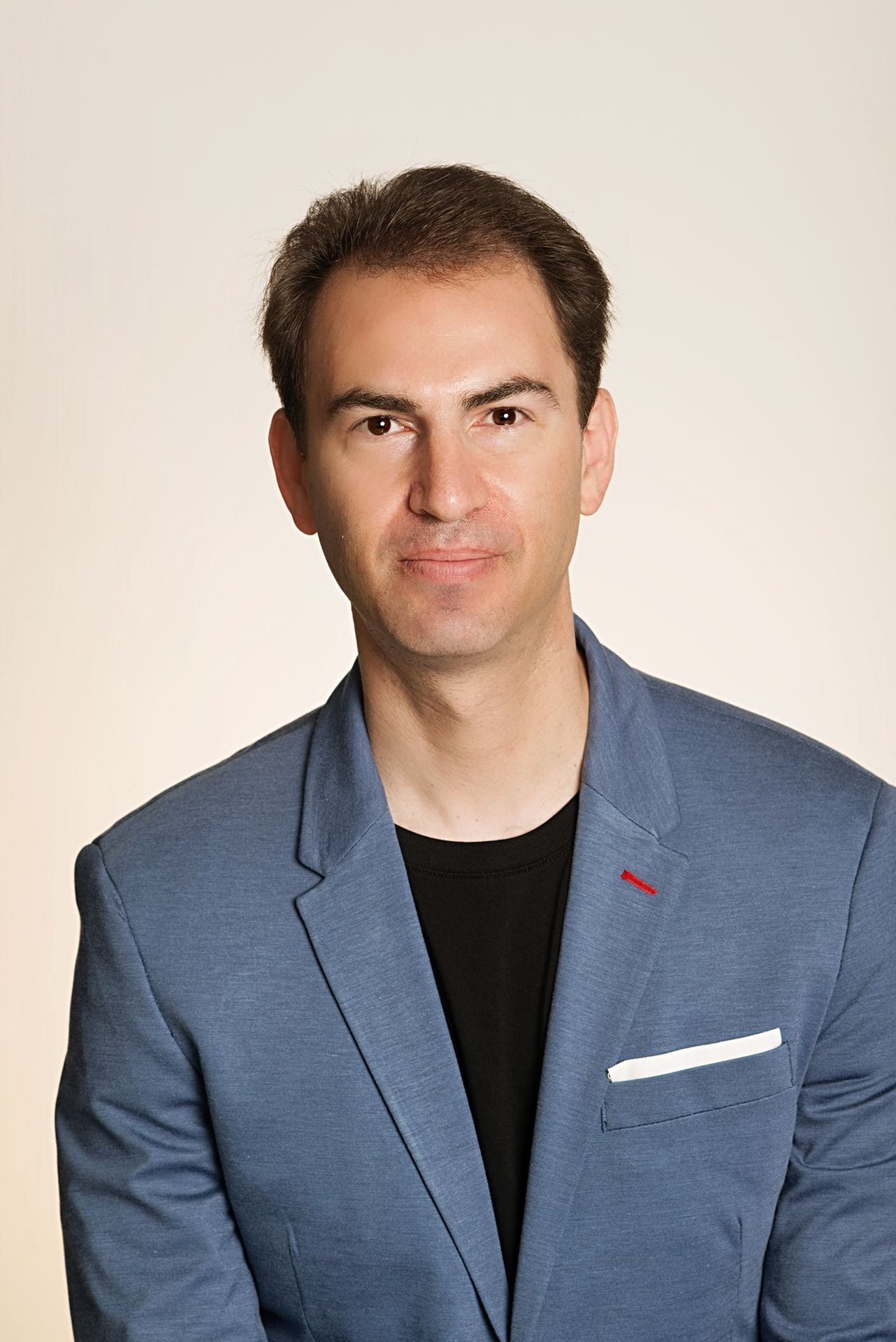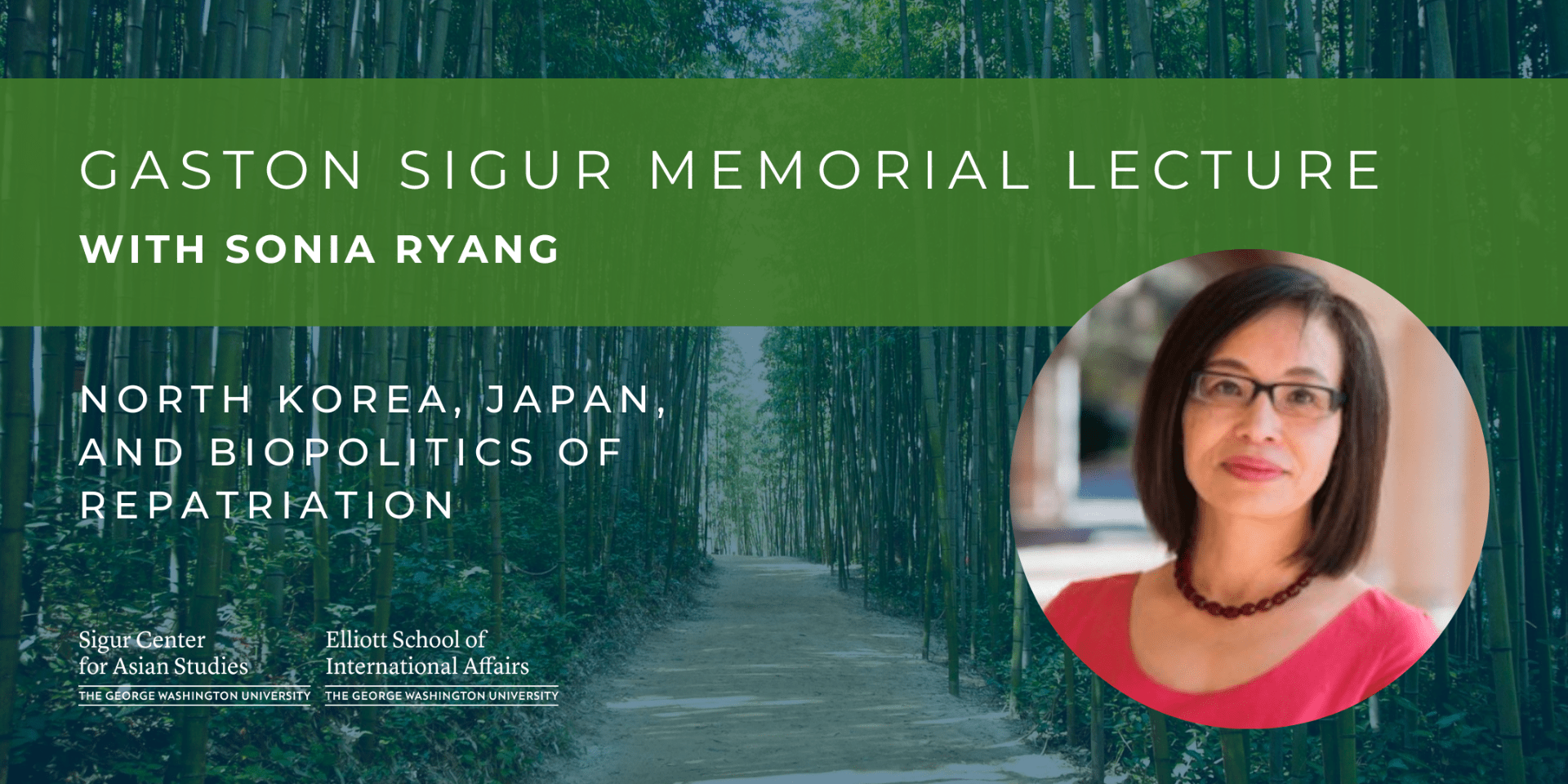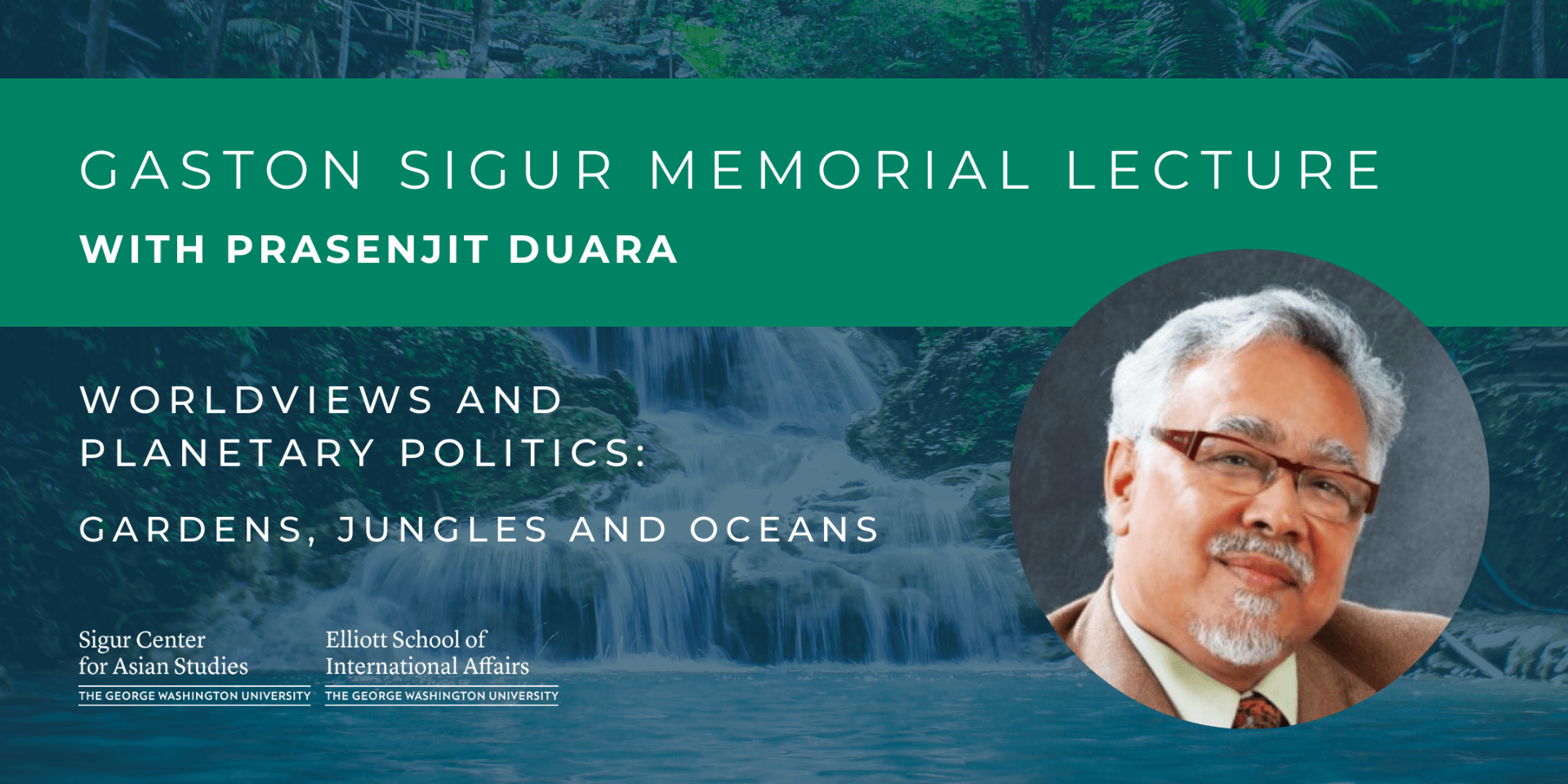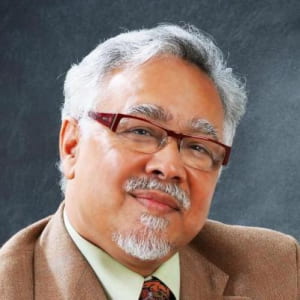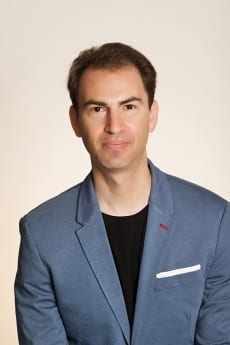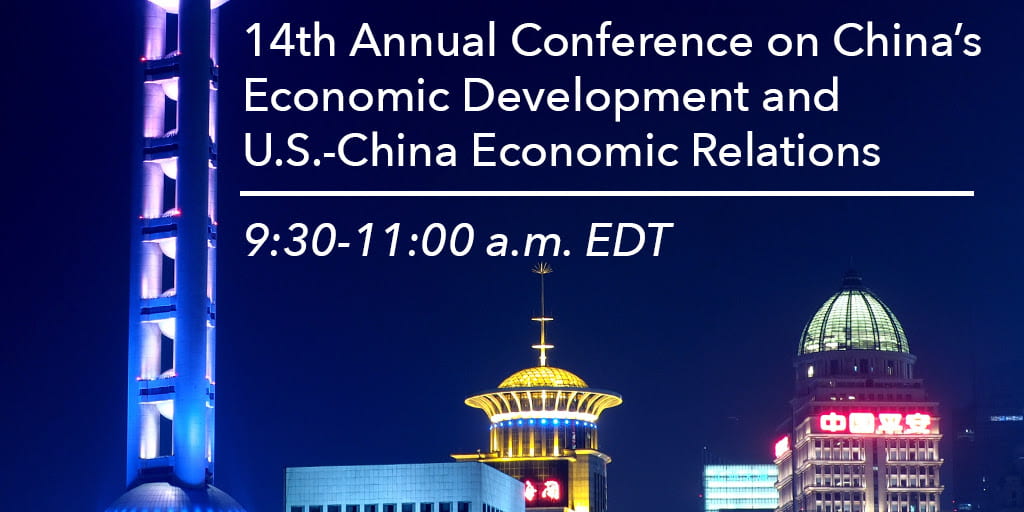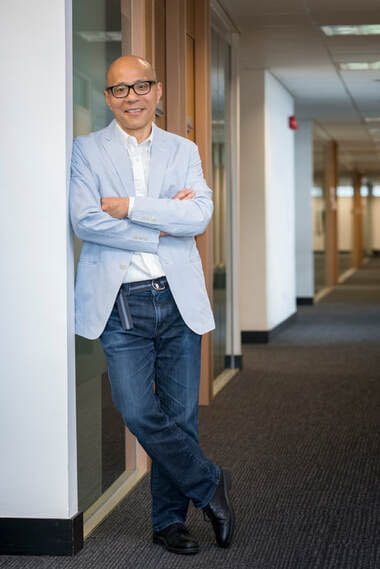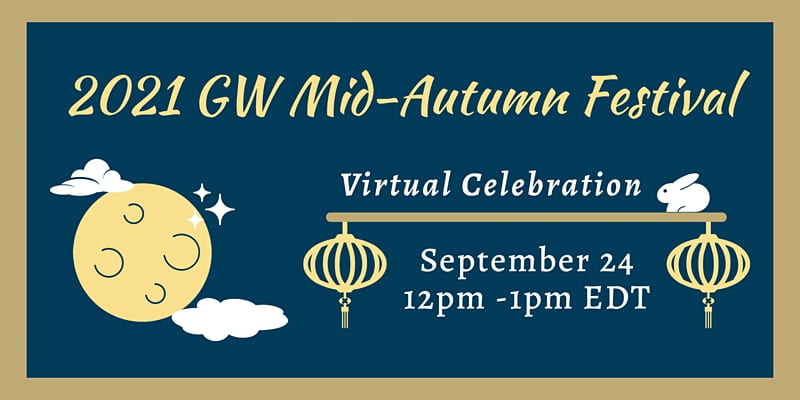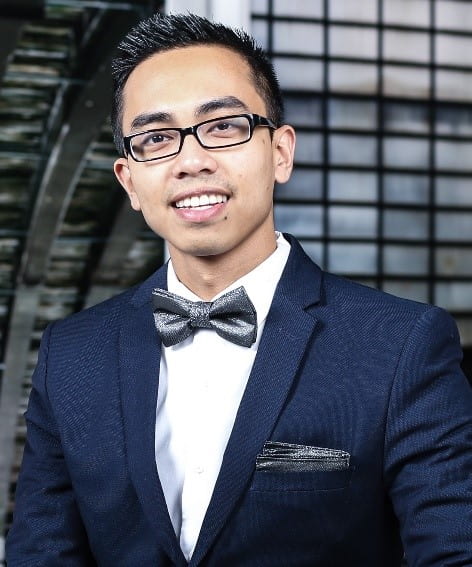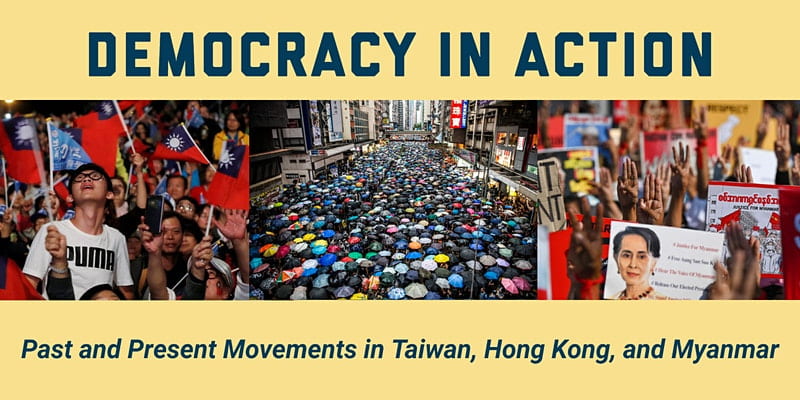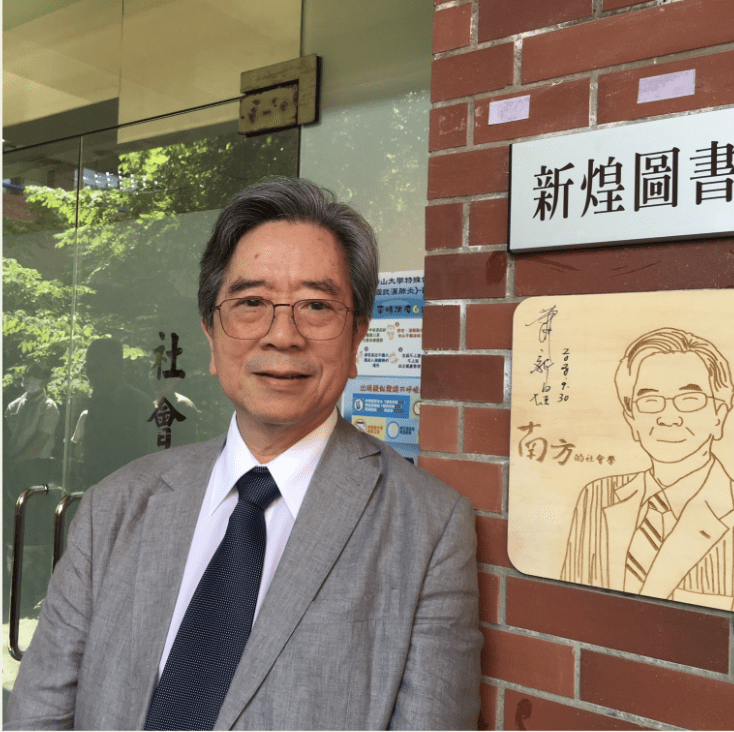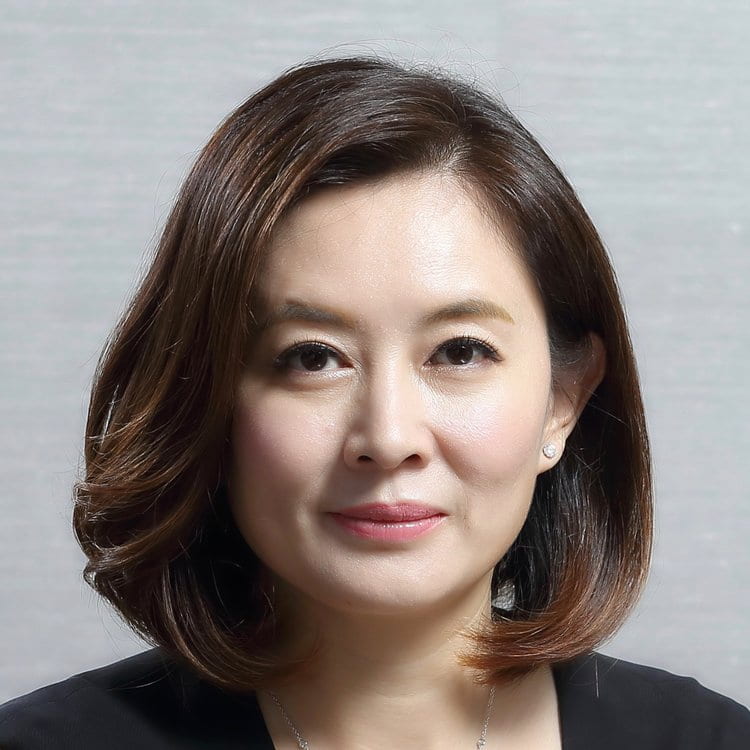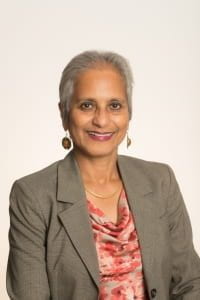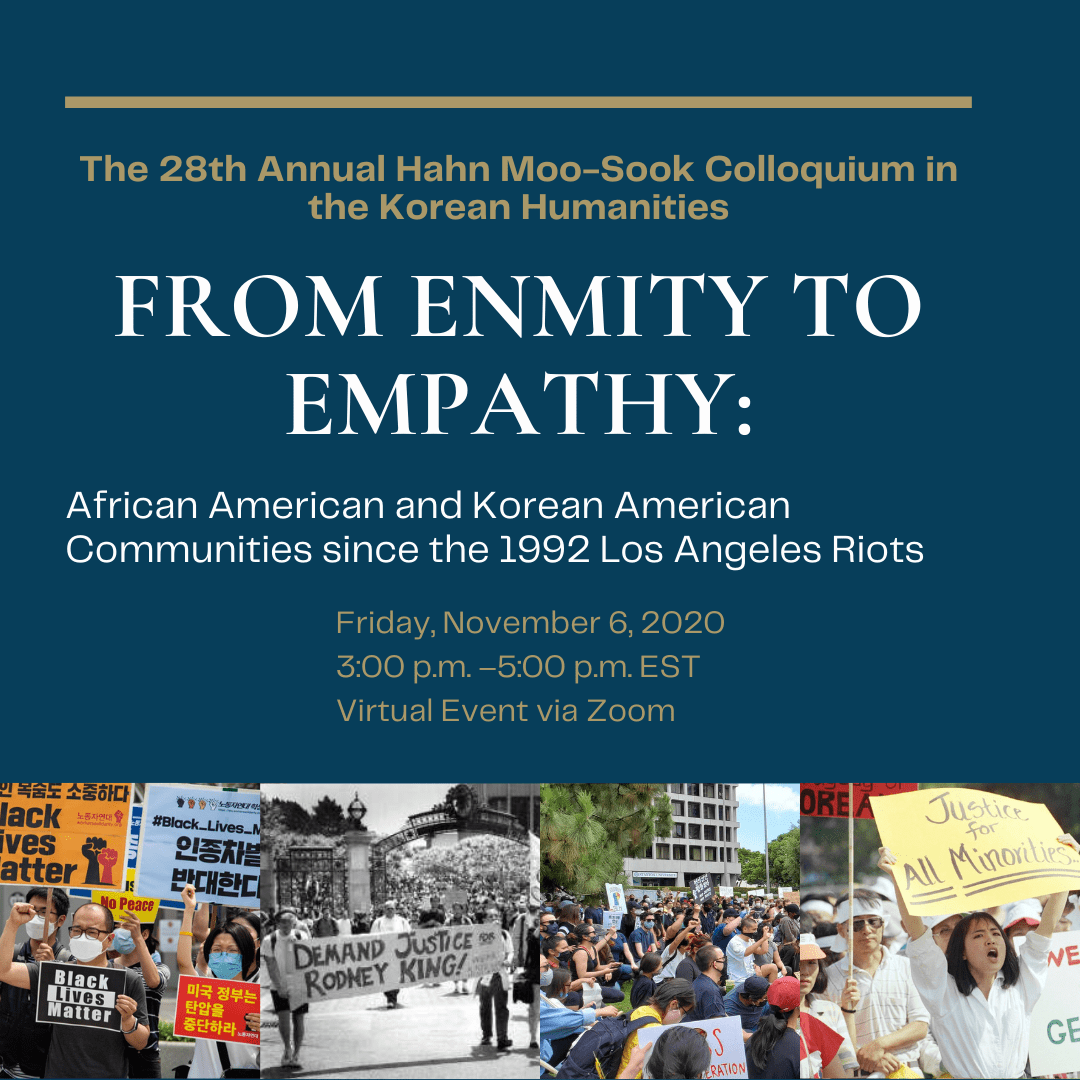Transcript
Gregg Brazinsky:
… all of you to the Gaston Sigur Memorial Lecture. The Sigur… I’m just briefly going to talk about the Sigur Center and tonight’s guest. The Sigur Center for Asian Studies’ mission is to increase the quality and broaden the scope of scholarly research and publication about Asia, and to promote US Asian scholarly interaction while educating a new generation of students, scholars, analysts, and policy makers. The Sigur Center promotes research and policy analysis on all different parts of Asia, East Asia, Northeast Asia, Southeast Asia, and South Asia. And it has an active program of publishing, teaching, public events, and policy engagement.
Gregg Brazinsky:
The Center offers students the largest Asian studies program in Washington DC metropolitan region with around 70 faculty members at GW who work on Asia. The Center was founded in 1991 out of the Sino-Soviet Institute and it was named for Gaston Sigur, a Japan specialist who had a long and distinguished career at the George Washington University, the National Security Council, and the US Department of State. And it’s also a particular pleasure that today we have four members of a Gaston Sigur’s family with us in the audience.
Gregg Brazinsky:
The Sigur Memorial Lecture is an annual event which was created with the intent of bringing an eminent policy maker or policy practitioner or scholar to the university every year to give an address related to the politics, culture, and international relations of East Asia. And today’s lecture in particular is partially to celebrate the 25th anniversary of the Sigur Center for Asian Studies. This year as our speaker, we are particularly lucky to welcome Ambassador Kathleen Stephens. Ambassador Stevens has a distinguished career in the foreign service. This includes serving as acting under secretary of state for public diplomacy and public affairs in 2012, as US ambassador to the Republic of Korea between 2008 and 2011, as principal deputy assistant secretary of state for East Asian and public affairs from 2005 to 2007, and deputy assistant secretary of state for European and Eurasian affairs from 2003 to 2005.
Gregg Brazinsky:
She’s also won a large number of honors and awards, which I’m not going read the full list here. That she’s received the 2009 Presidential Meritorious Service Award. She’s also received recognition from the Korean government. She received the Sejong Cultural prize in 2013. And in 2011 the Pacific Century Institute’s Building Bridges Award, as well as the Outstanding Achievement Award from the American Chamber of Commerce in Korea. Please join me in welcoming Ambassador Kathleen Stephens.
Kathleen Stephens:
Thank you. Well Gregg, thank you very much and good evening everyone. I’m going to move this aside. I’m not going to risk my luck and your patience with trying to [inaudible 00:03:49]. Thanks again for that really kind introduction. I am delighted to be back here at a George Washington University at the Gaston Sigur Center for Asian Studies, and I am so honored to be delivering this 22nd Memorial Lecture on this 22nd day of May. It’s a particular delight to see four members of the Sigur family here who have continued the tradition of public service that Gaston Sigur epitomized. Thank you. Thank you for being here. I know that these lectures over the years have brought many distinguished speakers to this podium to address a wide range of topics. And the scope of the subject matter, I know from Gregg over the years, reflects, well, I think the Center’s growth and maturation, and it’s a fitting legacy to Dr. Sigur, whose own career was one of such exceptional variety and impact.
Kathleen Stephens:
I understand tonight’s lecture is the first time that we ate first and then are speaking afterwards. Gregg probably, maybe didn’t know that one of my favorite to a Korean expressions, I have many favorite Korean expressions, is [foreign language 00:05:00], even when you go to the Diamond Mountains, you should eat first. So thank you for that. I know it makes for a more content audience. And what I’m going to try to do, although I have a rather formidable list of notes here, when we start talking about lessons, I have a lot of lessons, I guess. Maybe I’m trying to really get into my second career. I no longer work for the US government, so don’t take anything I say too seriously or hold against the US government. But I do want to try to make some comments even though they’re somewhat lengthy, a little bit of a trip down history and memory lane, and then really open up to a discussion because we really have quite an extraordinary group of people here, many of whom I know, and many of whom I’ve known for years.
Kathleen Stephens:
So thank you all for coming. But I was reminded, actually this weekend and earlier today, of Gaston Sigur’s career. I was in New York, as I was saying the family, earlier today where I was attending a trustee meeting of the Asia Foundation. As many of you know, Gaston Sigur worked 16 years for the Asia Foundation in Afghanistan, Japan, and San Francisco. And I was thinking about how that experience really prepared him so well for his subsequent work in academia and in government. I think that has to do with what the Asia Foundation is, and what is too often missing in academic, if I may say, and government circles in terms of on the ground and in country experience and expertise. So I’ll stop talking about the Asia Foundation in a minute, but maybe another lecture could talk about that because I think that’s an example of the kind of engagement and soft power that’s more important now than ever.
Kathleen Stephens:
But tonight I am going to focus on Korea. When Professor Brazinsky invited me some months ago to be this year speaker, he said I could talk about anything I liked, he didn’t say for as long as I like, but as long as it was about Korea. And so I suggested to him a topic that’s been kind of rattling around in my head for a long time. It’s something I just loosely call lessons from Korea. Now I personally have learned a lot from… I’ve been deeply influenced by Korea and by the Korean people. I know I’m not alone in this room tonight in that experience. But even more importantly, I think there’s a lot we can and need to learn about what works and doesn’t work and US foreign policy formation, implementation, and how we approach difficult issues, and working with allies, when it comes to our involvement Korea over the past 70 plus years. And some of these lessons, especially maybe the more painful ones, are especially important as we continue to address the challenges that North Korea presents.
Kathleen Stephens:
But I’m not going to talk, at least in my prepared remarks tonight, about North Korea. Gregg and I agreed that tonight is a good time, and I think this is a perfect venue and the perfect audience, to recall and reflect upon the events of 1987. Was it really 30 years ago [Steve 00:07:55]? The year that was the tipping point and Korea’s democratization, a year that saw ever-growing numbers of Koreans protesting in the streets, demanding the right to elect their president with their own hands. And getting it.
Kathleen Stephens:
Now just two weeks ago, and it was it really only two weeks ago, South Koreans for the seventh time since 1987 elected a new president in a democratic and free election. That election also came after weeks of protest, months, actually, of protest. Massive, peaceful, in the streets of Seoul and other South Korean cities. And this time the demand was the removal from office of a president, a democratically elected president, but one who had lost their confidence and trust, their [foreign language 00:08:48]. And they got it. Park Geun-hye was impeached by the national assembly and then removed from office by a constitutional court, roughly 11 months before her one term presidency would have ended in the normal constitutional cycle.
Kathleen Stephens:
So there’s a lot of lessons I want to reflect on. One lesson I wasn’t really thinking about, but I was telling someone before I came here that this was what I was planning on doing, and someone said, “well, did you see the Washington Post last Friday?” There was a headline, let me say, and online, the headline was, “South Koreans to Americans, we’ll teach you how to impeach a president.” It wasn’t really the lesson I was going to talk about tonight, and maybe we’ll leave that along with North Korea for questions and answers, or our side conversations. But I do hope that a kind of historical look back to 1987 and the ensuing years will help us think about issues that have fresh salience today throughout the world. And they do include things such as should, and if so, how, can the US promote democracies in other countries?
Kathleen Stephens:
What can we learn from Korea’s own democratic journey? And what can other countries learn? It may be more than we thought. Now you’re probably thinking if I’m going to describe 30 plus years of Korea’s politics and its political development before even getting to what’s happening now, we’re going to be here all night. So I want to assure you I won’t even try to do that, but I’m going to suggest a little bit of reading, if I could be slightly academic. And one great book to read is of course Gregg’s own book, Nation Building in South Korea. I may make mention of that a little later. But I’m also drawing from some memoirs by people I knew or worked with over the years, because I was talking about this mostly for an American perspective. I guess kind of obviously. This includes a time, as I’ll talk about, when I was an active duty foreign service officer. Don Oberdorfer for his The Two Koreas.
Kathleen Stephens:
He has a good chapter there on the events of 1987 and prior. And books of two other former American ambassadors in Seoul, William Gleysteen’s, Massive Entanglement, Marginal Influence. The title kind of says it all, but written about an earlier period of course. Also very important, ’79 and ’80. And my own former bosses book, the late James Lilley China Hand, and his chapter on Korean democratization. And actually there’s also an exhibition at the Wilson Center starting this Friday on Korean democratization after 30 years. Thursday, Thursday. And so I decided rather than to have slides, we’ll just go and see the exhibition. But what I’m going to try to do tonight, with your indulgence, is to give you a fairly personal account of what I witnessed and experience from my little vantage point and learned as a young foreign server, at least younger, foreign service officer assigned to Korea from 1983 to 1989, trying to make sense of Korea’s churning political scene, trying to understand, explain, and sometimes, in small ways, influence Korean and American attitudes and approaches.
Kathleen Stephens:
Now I guess another proviso, there’s a Mark Twain saying, that as I get older I have increasingly vivid memories of things that never occurred. So if something seems a little jumbled later on, you can certainly remind me. But one thing I certainly do remember very, very well is the far, far larger and really key role that Dr. Gaston Sigur played during those years. First at the Reagan White House, and then as assistant secretary for East Asia at the state department. I admired him then, and now 30 years later I admire him even more. But so I was pretty new to the foreign service. I served a couple of years in China. Just as we, US and China, normalized relations in the early ’80s. And then I was thrilled to be assigned to Seoul’s political section in 1983. I’d been a Peace Corps volunteer in the ’70s I knew a little bit of Korea.
Kathleen Stephens:
I was ready to go. And I wanted to be a political officer. Others in the embassy were not so enthused with the prospect of a woman in the political section. I was told repeatedly, and always I was told, with the best intentions, mostly by Americans, that I was the first woman to even want that job. Because Korean politics was such a man’s world that required drinking and carousing and all kinds of things, I couldn’t possibly be expected to comprehend or participate in. Nevertheless, I persevered. And after nine months of Korean language training to make me conversant in the language of politics, labor unions, and human rights, or at least to have some sense of what was being said to me, all these things were important to my new job covering Korea’s domestic political scene, I started that job. Trying to get to know, trying to understand and report on Korea’s internal politics, especially at student labor and opposition scene.
Kathleen Stephens:
So Korea in those days, in the ’80s, I know a lot of you weren’t even born then, so stick with me. It was a long way from the rural Park Chung-hee era Korea I’d experienced in the 1970s. So one lesson is, even if it’s a few years don’t rely too much on your previous experience. It helps, but you got to be open to what’s changed. And I certainly reminded myself of that year after year as I came back to see not only a much changed Korea, but this country as well. But in any event, when I was in Korea in the ’70s, talk of politics was essentially forbidden. There was a midnight to 4:00 AM curfew throughout the country. And my treasured copy of Time magazine in the ’70s arrived each week by Korean mail, blacked out and torn up beyond use by Korean censors. And I was back a few years later, 1984. Obviously a lot had changed. And when I started my job in the political section, Chun Doo-hwan had ruled the country since 1980.
Kathleen Stephens:
The economy was booming. Double digit growth in many years. Seoul had won the right to host the summer Olympics in 1988. Chun had promised he was going to step down in 1987 after a single seven year term, and that this was going to be his contribution to Korea’s political development, that he would not stay in office until literally the end as Park Chung-hee had done. And he would preside over Korea’s first peaceful transfer of power. But all those promises, all that economic growth, didn’t erase the deep antipathy and suspicion, in many quarters hatred, to a Korean leader who had seized power through a military coup, brutally suppressed citizen calls for democracy, most bloodily of course in Gwangju and May, 1980. And in fact, as the economy grew, as people prospered, as South Koreans watched people power gain ground in places like the Philippines, in those years, Korean university students, historically the conscience of the nation, increasingly found support for their democratization calls from a growing, urban, middle-class.
Kathleen Stephens:
A slowly liberalizing political environment, some of this liberalization done under some American pressure. If I seem to overemphasize the American role, I’m not ignoring what else happened, but that’s just where I’m putting a bit of emphasis. But this liberalized and political climate included the return of opposition dissident Kim Dae Jung from his exile in the United States. And together with previously jailed or banned oppositionists, they shocked the Chun regime with an unexpectedly strong showing in the parliamentary elections in 1985. The heavy handed, to say the least, police response to growing student and labor protests, massive lashings of pepper gas, the use of torture against suspected student radicals, all this further alienated the Korean public and strained US South Korean relations.
Kathleen Stephens:
President Chun continued to emphasize he was determined to step down in 1987, after finishing his seven year term. But as that term drew near, and as I think about this year, 30 years ago now, many Koreans doubted whether he really intended to relinquish power, or if he intended to, while should I say more of a Putin, and to retain some kind of behind the scenes power.
Kathleen Stephens:
There was an indirect electoral college method in place that was clearly designed to ensure that Chun’s long time friend and fellow former army general, Roh Tae-woo, would be his successor. And as these demonstrations gained force, gained steam, over a period of years and months, they focused increasingly, and with increasing support on one major easy to understand demand. It’s kind of like a branding I suppose. I mean there were many, many things that, especially the students, wanted to see addressed, but the slogan became, we want to elect our president by our own hand. We’re ready for that. And they gained a lot of support with that in mind. Some Koreans, most especially Korean students, blamed the United States for not doing more to support democracy, or to oppose Chun in 1979 and 1980. And I spent countless hours, really kind of futile hours I suppose, hearing these grievances and trying to respond to them as best I could.
Kathleen Stephens:
They were an apology for what they regarded as the American failure to stop the bloodbath in Gwangju in 1980, after supporting Chun. There were a series of attacks and occupations of American diplomatic facilities, including the firebombing of the US Cultural Center in 1982, and subsequent attempted attacks or occupations of US facilities elsewhere, including the occupation of the US Cultural Center in Seoul in 1985. So it was certainly clear to US officials, and not just political officers running around on the ground, but right up the chain, that a large proportion of Koreans wanted to see a more democratic system.
Kathleen Stephens:
But there was also concern, in the administration, about undermining Chun and his plan to step down with unpredictable consequences in a country is still under threat from North Korea. And it was also conventional wisdom, I’d just say not in every quarter, but in some, and I don’t think… I know this is not something that Dr. Sigur subscribed to, but I would hear senior policy people sometimes say, and scholars, I must say American scholars, that cultures that are heavily influenced by Confucianism were not naturally inclined towards the values of democracy, that this was going to be a slow process and it could not be rushed.
Kathleen Stephens:
During this period there were two horrific North Korean attacks, one on the Korean presidential motorcade in Rangoon in 1983, that almost killed the president, killed many others. And the other blowing up by North Korean agents of the Korean Air civilian flight coming back from the Middle East. But I was hearing from students and oppositions every day, why doesn’t the US do more? And they complained bitterly about US interference and support for dictators. I actually learned years later, when I went back as ambassador, from a South Korean diplomat, by that time in very senior positions, the foreign minister and others, that the Chun Blue House, back then in the ’80s, was always asking the foreign ministry, who is Kathy Stephens? And why was she on so many college campuses and so many demonstrations, seeing so many dissidents? Why wasn’t she acting like a proper diplomat?
Kathleen Stephens:
And I was reminded that the foreign ministry too, they were watching all this, and hoping, and in their own difficult position of trying to… So it was a story, not just the people on the streets but throughout the society looking for change. But that was my job and I loved it. But I want to stress two things that were done publicly. We talked about public diplomacy. There were a lot of private things, two things that were done publicly by very senior American officials that I think had a real impact, and I saw it for myself while I was there. And one was our Secretary of State, George Schultz, who made several visits to Korea.
Kathleen Stephens:
I remember one in particular just right around this time, 1986 I believe, when he was there primarily to show support for the summer Olympics. These were going to be supported and held in safety. And I enjoyed accompanying him to a photo op at Seoul’s spectacular new Olympic Stadium. But we at the embassy had been reporting on the use of torture, and it’d become public that in fact a student had died from torture in police captivity, and Secretary Schultz decided it was time to speak out about this. And I’ll always remember him saying, I don’t if it will have the same impact today, at a press conference simply, in that kind of deep gravelly voice he has, “you don’t torture.” You don’t… that’s all he said. But that diplomacy on torture, backed up by quiet diplomacy, but a clear public message, won us respect. And I felt this myself in my context, that we had not had before.
Kathleen Stephens:
1987 was the tipping point year. The year when President Chun started to actually tighten up again to prepare for an election later that year to elect his designated successor. And it was that year, the beginning of that year, February, 1987, with all this as kind of a backdrop anyways, that our assistant secretary of state for East Asian affairs, Dr. Gaston Sigur, gave a speech in New York. I don’t think the speech got a lot of attention in the United States. A lot of stuff going on back then too. But in the speech, he announced US support for the creation of quote, “a new political framework,” unquote, through constitutional and legal reform. And he called for the civilianizing of South Korea’s politics. Now that word, he gave the speech in English obviously, to civilianize, that captured the attention and the imagination of-
Kathleen Stephens:
The attention and the imagination of everybody in Korea. Wow. That was a mess. I remember we talked about how we translate, how we talked about that. A clear message that the United States was looking for something quite different, and hoping for something quite different, as Korea went through its political transition and a civilianized process.
Kathleen Stephens:
It was also during this time in ’87, in this increasingly tense atmosphere, that I made my one and only trip to The Blue House during that era. At that time I was accompanying my DCM, our number two at the embassy, to see a senior member of [Chun’s 00:23:41] staff. And that was when we’d seen in the newspapers and heard elsewhere through our sources, that there was this idea of having re-education camps for student activists, and we went and said, “re-education camps doesn’t sound so good. Are you sure you want to do that?” They didn’t do it, but I think there was still a kind of a tone deafness to what was going on in the country, and also how the US was reacting.
Kathleen Stephens:
Our new ambassador, Jim Lilley, arrived and broke with earlier tradition by meeting both opposition Kim’s, including Kim Dae-jung who was still anathema to South Korea’s elite in a way that’s very hard, I think, to imagine today, and had them to his residence for Independence Day and other events.
Kathleen Stephens:
But after this tumultuous spring of protests in 1987, on June 10th the ruling camp held their party convention. They nominated, to no one’s surprise, Roh Tae-woo as their candidate. And demonstrations seemed like maybe they were just going to tough it out, but then they started to grow again. The international press kind of came in more and more saying, “Is this going to be the next Philippines? More and more attention. There were rumors that martial law might be declared. Students were joined on the street by the so-called necktie brigade of men in suits and women coming out of the small stores. And you could walk down the streets in central Seoul and buy all kinds of makeshift gas masks so that you could try to endure the pepper gas, as more and more people came out. And amidst all this, we got word at the embassy of Seoul that there was a letter coming from president Reagan that needed to be delivered to m.
Kathleen Stephens:
And I remember my boss had a terrible time getting an appointment for our ambassador to go in and deliver this letter. He didn’t want to see it. But finally on June 19th he delivered the letter, it was a very gentle call for political rather than military solutions.
Kathleen Stephens:
And then six days later, Dr. Sigur came to Seoul and saw president Chun went to see Kim Dae-jung and others in the opposition. And that night at a dinner that was hosted by the foreign minister. And I think this is from Dr. Sigur’s own recollections heard from again, some of our friends in the foreign ministry, there’s a fever going on and that fever is democracy and we cannot turn it back and still every day we wondered what would happen. At least at my low level sometimes people think the United States knows everything. If they did, they didn’t tell me and I don’t think we really knew exactly how this was going to play out, but we could see the direction things were going.
Kathleen Stephens:
We had our hopes that this was going to go in the right direction and I arrived at work in the morning, every evening we’d go out and kind of watched the demonstrations, come in the morning, see what was happening, what the word was from Washington on what was being reported in the western press and sit down with journalists some times and talk about what was going on. But I got a phone call from a contact of mine in the Korean government and he said, do you have a television anywhere you can turn on, so I found one and turn it on and Roh Tae-woo. The presidential nominee came before the cameras visibly nervous and announced that he was agreeing to all the opposition’s demands. I still get to chill when I think about it and I went out and I remember another colleague of mine, Steve, I don’t know if you were there that day.
Kathleen Stephens:
But [Ed Dawn 00:00:27:09] was talking to all the journalists and I kind of burst into the room. This is a conference room in the embassy and said, kind of almost like hold the presses. You may want to hear this, I said Roh Tae-woo has just agreed to direct elections and all the journalists jumped up and ran out of the room. What you may do in a while too, but it was thrilling. I’m just trying to think, it was really thrilling. It was just a moment of great electricity and it was a climax, a day we remember. But what followed, and I won’t go into such detail, was equally important, and I would say somewhat unpredictable. Some would say maybe you could predict the two Kims split, even though they said they wouldn’t, the presidential contest became a raucous three-way race, but suddenly in those weeks following, and those months following, instead of going onto demonstrations that were heavily teargassed, we were going out to political rallies with a million people gathered.
Kathleen Stephens:
The hunger for political participation was moving, and inspiring, and a little scary too. What was going to happen? And in the event, of course, Roh Tae-woo benefited from the split between the two Kims and rode democratization and the Olympic wave to victory, and indeed was president when the Olympics came and was very successfully held in Korea in 1988, that’s my kind of summary of kind of how thrilling it was to be in Korea in those years, in the 80s. I left Korea in 1989 and my life and career took a different turn. 89 later that year, the wall fell. I actually ended up going to Yugoslavia just as it was breaking apart. And I spent the next 15 years working on jobs in post cold war Europe. But I took the lessons and I took the inspiration of Korea with me.
Kathleen Stephens:
And one was simply an optimism about the possibilities of positive change and I needed that as I worked in imploding Yugoslavia and I worked later to find a way out of the seemingly endless troubles and frozen troubles of Northern Ireland. But of course another lesson I carried with me was that the United States had a role to play and that individuals at various levels in different roles can make a difference, and then policy can make a difference in actions both small and large. But also a lesson, and again here I’m going to refer to Greg’s book again, the even more than the high policy state votes for the decision to do something in one place and not to do it in another is longer term engagement.
Kathleen Stephens:
What Joe Nye called soft power in some ways, the supporting education exchanges and values that can make a real difference. And this is, I think what you talk about in your book, Nation Building in South Korea, there was underpinning whatever we did right or wrong as the United States, relevant or not, in the 70s and the 80s we were there for decades. In supporting certain values, certain institution building and I think it had an impact. You can imagine in 2005 you’re getting a story of my life here. I’m sorry I returned to Korea for the first time since 1989 this is sort of like being, Rip Van Winkle, right? I mean Roh Tae-woo was president when I left in 1989 Roh Moo-hyun was president when I came back in 2005 as an official from the state department. They had the same last name but they spelled it differently in English, so to remember that.
Kathleen Stephens:
But they had some other differences as well. And in between the two, these two men that I had known as opposition leaders often seen them under house arrest. Kim Young-sam and Kim Dae-jung had both been president, so I have to say it was personally very moving and rewarding to go and see Kim Dae-jung to see Kim Young-sam, to see all these people I’d known and to see what had happened and hadn’t happened. How Korea’s democracy had grown like our own. I think in fits and starts, but overall in an incredibly impressive and positive way. And as part of the Bush administration in 2005, 2006, 2007 I had a role in working with the administration of president Roh Moo-hyun. Sometimes people called them the odd couple or sometimes people used to say about us career relations in those years that it was like [inaudible 00:31:22] music, it wasn’t as bad as it sounds.
Kathleen Stephens:
That was another Mark Twain quote I think, but in fact we worked with Roh Moo-hyun’s administration on the Korea-US Free Trade Agreement, right? Agreed under those administrations ratified under the next one. Korean troops in Iraq. Not a very popular war in Korea either, but South Korea sent the third largest contingent of forces to Iraq in those years. And of course the six-party talks where we made progress before we stopped making progress. But that’s another story. And this work of course continued into Lee Myung-bak administration and he was president while I was there as ambassador, when we worked together in the aftermath of the Cheonan ship sinking, the Yeonpyeong shelling and maybe not so much thought about now, but in the aftermath of the financial crisis of 2008 when Korea joined the… If you like the top table of economies as the chair of the G20 through a very difficult period.
Kathleen Stephens:
To me kind of again, but just kind of my impressions living in Korea again, being in Korea again after 15, 16 years, having left just as this great democratic tipping point had been reached and Korea was on this democratic path. I mean at first I realized I was asking people questions they found were very odd. I tried to get most of those questions out of the way before I actually became ambassador. But I remember going back in 2005 and 2006 and meeting with students and I said, well, what about the military and politics? They looked at me like I was crazy. They hadn’t thought about the notion that military was completely out of politics. Civilian authority had been completely established. Dr. Sigur would have been very pleased. It was civilianisation. The issue of legitimacy had been resolved. Remember in divided Korea, this question of legitimacy has always been something, it really ate at I think South Koreans self confidence and sense of their countries, place in the world.
Kathleen Stephens:
I found Koreans far more confident and this didn’t just come from economic growth. Even more it came from a sense that Korea had joined the world of democratic nations. This strength and security, it didn’t undermine it. That was always I think a false argument. Power had transferred peacefully across the political spectrum and successive administrations, as I’ve already mentioned it dealt with crises, economic security and each case there were some setbacks. I mean, Kim Dae-jung came to power thinking in the first instance, I think he really wanted to focus on inter-korean relations. What was the first thing he had to do a president, he had to deal with the Asian financial crisis and the meltdown and worked very, very closely, not just with the United States but with other partners to do so.
Kathleen Stephens:
The US had worked with all these governments and so I always found it a bit of a myth or at least an over simplification, this kind of conventional wisdom that still exists, I have to say in parts of the US thinking, on Korea that we work better with conservative governments. Maybe there’s some scholars out there who’ve looked at this and you can tell me if you found differently, but I think we’ve both been effected by our election cycles. That could certainly have a big impact on our policy continuity and goals. But I don’t think that there’s a real pattern that you can say that somehow if it’s a conservative government in Seoul it’s going to work better for the Americans.
Kathleen Stephens:
I’m talking about all the positive things I see, I’ll get to. Women’s rights, much improved. South Korea is still very low on a lot of the OEC scoreboards of opportunities and conditions for women, but it really was only with democratization, that pioneers like Lee Tai-young Korea’s first woman lawyer who fought for years, I remember seeing her in Yeouido with her kind of stand there helping women who were trying to get divorces, or get child custody, or get support and had no rights really under the old household registration system. It wasn’t until after democratization and quite a long time after that, some of those structural changes really began to happen.
Kathleen Stephens:
Human rights, I’m going to talk about this again in a very kind of way that I experienced it. The fact that in terms of being a Rip Van Winkle, there was no more corporal punishment in Korea. I worked as a Peace Corps volunteer in Korea in the 70s when students, including middle school students were brutally beaten and this was a pattern. I don’t want to embarrass Koreans here. I think it was kind of people didn’t like to talk about it or think about it, but this kind of brutality was pretty common, especially for the young boys through high school, through their military service. And I think really influenced the kind of treatment that university students got when they got picked up for demonstrating. That’s all gone. It’s all gone. It’s unacceptable, it’s not just a matter of protection for political rights, but it’s a new respect I think for broadly speaking, human rights and human dignity.
Kathleen Stephens:
And my favorite one is I saw such a blossoming of creativity in Korea compared to what I’d known in the 70s and the 80s I’m going to have to say I’m very nostalgic about the past. I’m getting old. I have to be nostalgic. And I have wonderful memories of Korea in the 70s but it was a pretty dull place in a lot of ways in terms of people’s ability to express themselves. I’m not talking about politics now, but I am absolutely convinced that without political reform, without openness, without democracy, you might see this is a good thing. There would be no Korean wave, there wouldn’t be K-pop, there wouldn’t be all these kind of amazing cutting edge artists that you see on the Korean scene now. It’s just part and parcel of what comes with it. And I think Korea has been just an extraordinary example of that connection.
Kathleen Stephens:
What are some of the continuing challenges I see? Clearly institutional development has been uneven in Korea. Local autonomy was introduced some years ago. I think about 10 or so years. It’s still relatively new and there actually will be local elections next year. I think this is important, but it still has, I think by Korean zone analysis on all sides of the political spectrum, a long way to go, that vortex of Seoul, the sucking sound of centralization in Korea and in Seoul is still very, very strong. The national assembly is still relatively weak and of course the presidency is still quite strong. However, the one term five-year presidency, which was enshrined in the 1987 constitution as the best block to someone staying on in power, has as any democratic compromise does, as any structural compromise does, its own weaknesses.
Kathleen Stephens:
And in the case of Korea, of course it means that one becomes a lame duck very, very quickly. Some people say even the day after you’re elected, you’re a lame duck, but certainly by your third or fourth year, and we’ve seen this with each Korean president, power really seeps away. And with it and with the stepping down from office, I think there continues to be a really unfortunate tendency towards retribution. Someone said to me recently that being a South Korean president is the worst thing you can possibly do for your legacy and your reputation. I mean most South Korean presidents, and I’m not just talking about the most recent one, it doesn’t end very well. Again, you could point to individual ones, [inaudible 00:00:39:05]. And say, well they deserved it. But I think there’s a broader question there, which is how does Korea’s democratic system mature to the point where former presidents can live in dignity and safety after they step down.
Kathleen Stephens:
The press environment? Much change, but it’s changing still. And young people, and this brings me up finally to the present day, I think I’d say all the young people born well after 1987, well after Korea joined the ranks of the middle income countries, have both great expectations and also great dissatisfaction and discontent with what they see as growing inequality and hyper competitiveness always there, but even hyped up more now, ironically by it’s success in Korea today. But certainly my feeling as an American coming back all these years was that when president Obama said, I liked it every time he said this, that US-South Korean relations were stronger than ever. I always really agreed. I didn’t think that was just sort of feel good talk. And I really felt that the most fundamental reason that they were stronger than ever and more resilient than ever was precisely because of Korea’s democracy.
Kathleen Stephens:
And yet, despite all that beginning last year, of course, South Korea experienced what most Koreans now regard as its most significant political crisis and upheaval since 1987 and it had nothing to do with the US, it had nothing to do with North Korea. I think most of you kind of know what happened. If I summarize very briefly, maybe we can talk a little bit about [inaudible 00:40:50] of why it happened, what it means and some prospects for the new Moon Jae-in presidency and Korea’s democracy. Just to remind you kind of what happened. Park Geun-hye who was elected president in 2012, in 2016 last year she was entering this kind of lame duck portion of her presidency. I think it’s fair to say she had already been weakened by deep disappointment about her handling of the Sewol tragedy, and the aftermath, and the opposition, shades of 1986 here made a strong showing, a surprising strong showing in 2016 national assembly elections last year.
Kathleen Stephens:
And then of course these reports began to emerge that the daughter of her friend had received preferential admission and treatment at an elite Korean university. Ewha a woman’s university. Student protest began. This touches a real nerve in Korea, right? This notion of missed inequality that the one chance that ordinary Koreans feel they have to move up in life is through education and elite education. That it is a vortex and still a very narrow one. And the notion that someone had been able through connections, sure it never happens here, to get into a university really outraged people, and these protests began. And then of course this snowballed when the story that was investigated by now a much more competitive and diverse press, but competitive is very part of it too. And social media, I think there’s all kinds of social media research should be done, but we can learn from on this about this friends, associates influence on her administration, present [inaudible 00:42:33] administration and then of course about influence peddling with Korea’s large corporations, the chaebol. The candlelight vigils began and grew. I saw one in November last year when I was visiting in Korea.
Kathleen Stephens:
In fact, I’d come back from south of the river and I was staying up towards the embassy, towards [Anguk-nong 00:42:54] and I had to walk from… For those who know [inaudible 00:42:56] from Nam Dae Mun, completely filled with people and I’m sure some of you saw it, quite impressive, quite impressive and yet much unlike [course-19 00:43:04] there’s certainly no tear gas but almost, I mean serious and yet happy. A really interesting phenomenon. And although the emphasis has been on the young people, the younger generation, fat people out with their families, sometimes their in-laws, their children, but all out with these signs and they basically said Park Geun-hye must go.
Kathleen Stephens:
And I actually, again back to my old political officer roots I guess. And I’m just as a civilian now myself. I sort of asked people and I still speak enough Korean to go up and sort of ask them, why are you out here demanding she step down now? You’re going to have an election next December. She’s one term, you know she’s stepping down, why aren’t you… I started in America, we would, well it’s really worked well for us, but we’d be finding a candidate to support and getting ready for the election next December. And you want to get her out now and you’re just pouring all this passion into it. And honestly, presidents including in the nine states, and [crosstalk 00:44:11] they have friends they talk to, the relationship between business and government in Korea.
Kathleen Stephens:
This is not exactly a new story. What is it that inspires this passion in you? And they said a lot of things and they said, we’re so embarrassed by her. I don’t see why you say, [inaudible 00:44:31] so I said, well, you’re embarrassed, but she’s lost our trust. And a lot of the university students that I talked to, that said our seniors struggled for democracy in 1987 now is our moment. Our moment is to pick up the torch, almost literally and carry it on. And I do think that for all this real dissatisfaction and anger at her performance as president and what she had done, underlying this is what I mentioned earlier, this deep sense that that Korean society had changed so much that the deck was stacked against a lot of young people, prospects for education and betterment had declined.
Kathleen Stephens:
Again, perception there’s a longer discussion there to have, how much things have changed. But in any event, they were out there and they want to change. And the younger generation, a big generational divide I would say in this issue. President Park was impeached by the national assembly by professional politicians who were really following the voice of the people in this. They weren’t really ready for an election like right now, but she was impeached and then removed by the constitutional court through institutional and procedures. I think one can debate, and I hear Koreans debate to what extent this is kind of the mobs on the street. I don’t see it as that versus the use of institutions. But I think the process to me was impressive. Forced peacefulness and force adherence to the processes laid out in the con…
Kathleen Stephens:
Adherence to the processes laid out in the Korean constitution. So, of course, the election was held May 9th. Again, it’s hard for me to think that was just a couple of weeks ago with the highest turnout, voter turnout, in decades, particularly among the young. Moon Jae-in from the opposition party, the democratic party who’d run against Park in 2012, and lost a fairly narrow election, was elected. And, again, kind of a three way split, although there was 15 candidates in all.
Kathleen Stephens:
And, much again kind of shades a little bit of 1987. One with a clear victory and a larger margin than Roh Tae-woo did, but clearly one with a split among the other candidates. So, there still is a large segment of the conservative population, I think, in Korea that remained concerned about what this all means.
Kathleen Stephens:
One other point I wanted to make about the election, because I think it was, and, again, I know this room is filled with people who follow this even more closely than I do. But, I think if you… For those of you who maybe only saw western reporting, I’m not trying to beat up on western reporting, but on the election, and the other things that were going on in April in terms of tensions in North Korea and the response of the Trump administration to it, it would be kind of easy to think that the election was about security in North Korea.
Kathleen Stephens:
I mean, certainly for the younger generation. And, my sense is, it really wasn’t. And, I was back there for a week or so and April. It was domestic concerns, the kind that I mentioned that outweighed by a long shot the security of North Korea issues. Or, for that matter, Alliance issues in the election. And, now, in the aftermath, Moon was sworn in about as quickly, I guess, as you can imagine, within a few hours.
Kathleen Stephens:
There are very, very high expectations of him. Especially on the economic and welfare side and I think it is going to be very challenging, of course, to address these. Some of these are very deep rooted issues of demographics, of the challenges we see elsewhere that have resulted in some surprising election results throughout the world of a sense again of Korea is not a country that’s going to walk away from trade.
Kathleen Stephens:
It’s heavily trade dependent. But, the globalization that the sort of established order as it’s kind of worked for the last 20 years has had some winners and losers. And, that and that things need to be reordered a bit. So, he has some proposals for addressing that. But, I think he will find the challenge great, as leaders elsewhere do. Moon has, since becoming president, reiterated that he would like to work for constitutional revision. Something that’s been talked about for 30 years, since 1987, but not done to lessen the power of the presidency. Perhaps to change the term of office to two terms. And, to make us some kind of constitutional revision happen at the same time as the local election do next year. So, I think there is, I mentioned all these things not to get too much into the weeds. I guess you’d say, “Wow, she’s really into them already. Nevermind.”
Kathleen Stephens:
But, I think there’s this notion that this is a moment of kind of redefining Korean democracy. But, redefining and on the framework that was kind of proudly established in 87. But, is now really found to be insignificant. So, I think it’s really interesting. I don’t envy president Moon, but he, right now, is enjoying tremendous good will and tremendous hope as well as, as I said, some very high expectations.
Kathleen Stephens:
And, of course, he’s also facing, and this’ll be my final point and I think a very, very challenging international environment. An environment talking about how things have changed. Nevermind 30 years, but over the last 10 years. And, North Korea under Kim Jong-un determined to be established as a nuclear power. Moon Jae-in has responded. There’s been two missile tests just since he became president.
Kathleen Stephens:
Although, certainly you would find many Korean conservatives worried that he might be too soft on North Korea. His immediate response to the missiles tests has been, let’s say, indistinguishable from other South Korean governments in asserting the importance of cessation of that and a move towards denuclearization. But, also, looking for a way to open up some kind of diplomatic process. I take it as a very positive thing that there is a plan to have a summit with president Trump as early as next month. Sometime towards the end of June. And, to try to really develop a relationship there.
Kathleen Stephens:
But, of course, that challenging international environment also includes an assertive and confident China and a bilateral relationship, which is probably worse at the moment. Again, maybe there’s a chance for a bit of a reset with Moon Jae-in in power. But, having gone through, maybe, it’s worse periods since normalization 25 years ago. And, maybe by the time they celebrate 25 years of normalization later this summer, they’ll have found a way to get back on a better track. At least in terms of South Korea, China.
Kathleen Stephens:
So, I guess I just want to conclude with a final thought. As you could tell, I could probably go on all night about what I saw and what I think I learned and what I think we could think about in terms of us foreign policy. But, also, just in terms of Korea’s journey as a whole. It’s a lifelong interest of mine. That sounds too mild, I guess. And, I know of many here in the room.
Kathleen Stephens:
But, I guess, the thought I just wanted to leave you with was something that former president Obama quoted after our election in which he reminded us that George Washington exhorted Americans in his farewell address, a couple hundred years ago, that all Americans, that we’re almost all the anxious, jealous guardians of our democracy. And, I thought, you know, that’s a little bit like what I think Koreans out on the streets here over the last year felt they were. Anxious, jealous guardians of their democracy.
Kathleen Stephens:
And, I think that’s a lesson in kind of an inspiration. That whether it’s in Korea or, dare I say in the United States or elsewhere, is we see democracies under some stress. All of our democracies are unfinished business. And, I think we can all draw not just lessons from the distant past and the urgent present, but, also, from each other. And, that we’re going to have to find a way to work together more closely as democracies if we’re going to find some reasonable response to the challenges of North Korea to the continuing challenge, I think, of the next generation to find a path to reconciliation and peace on the Korean peninsula.
Kathleen Stephens:
So, I do enjoy reflecting on the past, but I hope we can also, maybe, in our remaining time, think a little bit about how we go forward from here. So, again, thank you very much and thank you, especially the Sigur family for your many contributions. And, it’s great to be here with you tonight to remember Dr. Sigur.
Kathleen Stephens:
So, I’m told we have a little bit of time. If we want it. To have comments or questions or cookies or… Yes? And, if you don’t mind just telling me your name just because they’re, you know.
Speaker 2:
My name is… oh. My name is [inaudible 00:53:39] from [inaudible 00:53:40] and now I’m a [inaudible 00:53:40] at the Sigur Center. And, thank you for your great presentation and storytelling about the South Korean [inaudible 00:53:43] of 1987. And, I agree with most of your points. Personally, I like the combination of your personal career path and [inaudible 00:54:00] South Korean [inaudible 00:54:00] of 1987. So, I wonder what you think has made [inaudible 00:54:15] to keep things [inaudible 00:54:17]. At the end of your presentation, you mentioned this briefly about the challenge of South Korean democracy.
Speaker 2:
But, let me tell you one thing. The South Korean [inaudible 00:54:27] like me, let’s say since 2015, a couple of years ago from now, focused on [inaudible 00:54:35]. 2017 is [inaudible 00:00:54:40]. But, now South Korea democracy seems to have been backsliding quite a lot.
Kathleen Stephens:
Backsliding. Okay.
Speaker 2:
Yeah. So, what have been made [inaudible 00:54:53] to make South Korean democracy. For example, some people consider [inaudible 00:54:58] political system is [inaudible 00:09:04]. And, some people might say Confucian culture is a problem. Especially in making progress on women’s rights or human rights, something like that. And, also, some people consider elected politicians and bureaucrats don’t behave like the politicians in bureaucracy and democracy. They behave like noble men [inaudible 00:55:28]. So, many people argue that there are some social problems in [inaudible 00:55:34] democracy in South Korea. So, as a very close observer to South Korean democracy, I wonder, what do you think of [inaudible 00:55:38] further South Korean democracy?
Kathleen Stephens:
Yeah. Well, I mean, all those things you mentioned I think are challenges or obstacles. I tried to list a few areas where, yeah, I feel like, still, more needs to be done. How do we get there? You know, there’s the Churchill quote about democracy is the worst form of government in the world except for all the others. I mean, it certainly is a process. It’s not a kind of a perfect… a condition that can be perfected.
Kathleen Stephens:
But, yeah, I do think that in terms of institutions, the progress in the press and in the courts has been very important. I see a lot of change there over the last decade or so. And, I do, again, I’m still hesitating because I used to work for the U-S government.
Kathleen Stephens:
I wouldn’t say this, but now I guess I can say whatever I want. But, I do think that there needs to be some ways of making the… of allowing the national assembly to be more effective and more engaged. Frankly, it’s a problem we have in our country right now in my opinion, too. And, not for constitutional reasons.
Kathleen Stephens:
And, how does that happen? I think a lot of it just turns out to be people who go in. The reason I’m so encouraged now is not so much because one candidate or another was elected. But, because so many young Koreans, or, not so young, are activated. They want to be involved. So, I think that sort of activation is the most important thing to try to work across a range of these issues that you’ve laid out.
Kathleen Stephens:
So, I really can’t just pick out one and I think they’re getting there. I do think that the local autonomy issue, which I mentioned, is one that bears, I don’t know what you think about that. But, that it’s sort of, again, it was local autonomy, but kind of imposed from the top. And, needs to become a little bit more organic, I think. And, I think gradually that’ll happen.
Kathleen Stephens:
Hope that helps. Yeah. Over here.
Ella:
Hello, thank you, so much for a great speech. My name is Ella and I’m from Kazakhstan. And, there are around, I believe, around 200,000 Koreans, ethnic Koreans living in central Asia. And, for those people who both know, they came from Russia in 1936. And, they came to Russia before that. Was from the northern part of Korea. I was curious, do you know anything or while you were working in South Korea, interest from South Korean leadership, whether they had interest to help those Koreans in central Asia? Because, I might be wrong, because from my perspective, it seems that there is lack of interest in helping or just communicating with Koreans in central Asia. It also seems that not so many people in South Korea are aware there are Koreans in central Asia. Thank you.
Kathleen Stephens:
Yeah, thank you. There’s actually, there’s a, I’m almost recommending things. There’s a documentary film that was made a couple of years ago called Cordio Sodom, the unreliable people. Right? And, it actually, if you have to, it has this great footage that, I mean, very moving. It shows the this movement of ethnic Koreans from Russia and the border areas into central Asia where they were just like dumped in the plains in the winter and kind of told to survive.
Kathleen Stephens:
During my time as ambassador in Korea, I haven’t followed it really since then, the Eemian Bach government was very interested in developing stronger relations with central Asian countries. In particular, Uzbekistan. But, I think also Kazakhstan and some others. Part of this was kind of resource diplomacy. And the fact that there were Korean communities in some of these areas, albeit ones that had really no ties to Korea.
Kathleen Stephens:
These are communities where, generally speaking, as I understand, they don’t speak Korean. The link is, cultural link is pretty well lost. But, they were certainly interested in looking for ways to strengthen their relationship. So, I actually visited Uzbekistan from Korea and my colleague there, the American ambassador in Tashkent said Seoul has the best bilateral relationship with Tashkent of any government in the world. And, in fact, Korean Air was building a huge logistics hub. The same kind of logistics hub that exists… cargo hub that exists in Incheon airport there in Tashkent.
Kathleen Stephens:
So, there was a real effort country by country to think about strategic trade partners, linkages. And, in part to kind of, if you like, I think, market the Republic of Korea as sort of not being China. For those who are worried about Chinese domination. But, bringing certain capabilities and certain links.
Kathleen Stephens:
With respect to the Korean communities, my impression is that most of the Korean communities of central Asia, if they had any ties to Korea, they tended to kind of be to North Korea. But, that’s changed now over the years. And, I think E is slowly, interesting, you haven’t really seen much. But, slowly in Uzbekistan, for example, I did see some effort to establish some linkage. But, we actually, actually, I remember, see, I always tell too many stories. But, I visited a General Motors plant in Korea down near Pusan. I’ve forgotten, Shaman, I think. But, General Motors also had a plant in Uzbekistan and they used to bring the Uzbek employees back and forth. For kind of internships and so forth. So, there are things going on. But, I don’t know what recently, so much. Thanks. Yeah, rust.
Speaker 3:
[inaudible 01:02:26] interesting presentation. I was cast a special assistant during that period of time. I remember a key role that might help. My question is about the Korean military. You mentioned that when you got reengaged to Korean affairs, 2005, on. You raised the question. There was no residence at all. [inaudible 01:02:51] didn’t take the [inaudible 01:02:52] role. But, during this recent impeachment, were there any clinches in the military that you picked up? Any thought at all that maybe democracy wasn’t going to work out or was that [inaudible 01:03:01] really over?
Kathleen Stephens:
I think that’s really over. I mean, if someone heard this thing, I think that’s really over. And, actually, since we’re talking about our former mentors and colleagues, Jim Kelly was in New York. And, I was talking to him yesterday. Actually, about this point. And, he told me something that I hadn’t heard before, which he said, “When Roh Tae-woo became president in 1987, he actually,” I’m not betraying confidence here. I think it’s so long ago, nobody cares. But, except we aficionados. But, there was a conscious effort to kind of promote up and out serving officers in the Korean military who might’ve had some political inclination. So, there was kind of a conscious effort. But, no, since then, absolutely not. I never heard anything. Yes.
Mike:
Mike [inaudible 01:03:59] how would you advise the new president to thread the needle in terms of dealing with the U-S administration? I mean, he has his own ideas about what he wants to do about North Korea. And, I’m not at all sure that our administration would say, “Well, fine, you want to deal with him, okay. Take the problem off of our hands.”
Mike:
How far can he push this thing? Particularly since at some point there’s going to be an impetus for direct U-S North Korea diplomacy or dialogue or whatever you want to call it. And, can you do that and cut out the South Koreans? Or do you end up going back to the six party process, which didn’t seem to be terribly successful?
Kathleen Stephens:
Thanks. One of the things that was a great worry, I think, in Korea and South Korea over the last few months, during this period of, I hate to call it a political vacuum. Because, the very capable civil service went on. They had a very capable acting president. But, nonetheless, there wasn’t political authority there in terms of elected president. And, in the meantime, our new president came into office. And, in particular, in March and April had a lot to say about policy towards North Korea. Some of it sort of contradictory.
Kathleen Stephens:
And, there was a real worry in South Korea about what sometimes called Seoul passing or Korea passing, right? That while South Korea was going through its political process that prime minister Abbaye had established a good relationship with president Trump, Xi Jinping and president Trump seem to be, at least from the American side, kind of new best buddies.
Kathleen Stephens:
You have Xi Jinping, according to president Trump, telling Trump that to Korea used to be a part of China. Which, of course, Koreans would not really agree with. So, there was a worry. And, I think when Moon Jae-in came in getting to advice, I mean one, I think he has a political imperative. But, also, just from a policy point, if you will, imperative to kind of get back in the game, get Seoul back in the game. And, be at the table when North Korea policy is discussed. And, when decisions are made.
Kathleen Stephens:
And, I think he’s done a good job of, of getting started on that by sending over his special envoy who was welcomed at the white house who had a meeting with president Trump. And, now, they’ve began to plan for this summit. So, my advice would be to build that relationship. I’m just as Mr. Abea has. Just as Mr. She has. But, to try to come to it with ideas from a Seoul perspective that are going to be attractive and workable from a U-S point of view. I don’t think that’s impossible. I mean, obviously, I guess, I just worry more about what I see so far as the kind of the incoherence of the American approach. But, I hope we’ll get a little more coherent. And, I think that we’re going to see Moon Jae-in really emphasize that there’s also an inter Korean dimension to this.
Kathleen Stephens:
And, he’s also already said some things about this that. That, for example, again, this is not my advice to him, these are some things that have been suggested, but I think they sound like they’re worth exploring. That in an effort to improve the atmosphere for talks without undermining sanctions or pressure or the insistence on denuclearization, the new government in Seoul might look good at restarting certain humanitarian assistance programs or family reunions.
Kathleen Stephens:
Now, easier said than done. And, where Pyongyang is on these things remains to be seen. They’ve already come down pretty hard on Moon Jae-in. But, I think those are the kinds of things that he’s going to want to explore and he’s going to want to do it, clearly, in close coordination with Washington.
Kathleen Stephens:
Yeah. How can we get back into a diplomatic process, whether it’s six party or some other configuration, I do think it’s very important that that Seoul is a full participant. It doesn’t have to be in every meeting. There could be an inter Korean channel, there could be a U-S, Pyongyang channel for certain things. But, there has to be. The one thing we have learned, I mean, one lesson, again, I didn’t talk so much about North Korea over the years. But, North Korea is a challenging enough problem. But, to even have a chance to work, a precondition is Seoul and Washington has to be working together. And, that was certainly a lesson we learned in the Kim Dae-jung and the Wuhan years through bitter experience. Even if we are working together still-
Kathleen Stephens:
Experience. Even if we are working together, it still may not result in what we want, but at least we have a chance.
Speaker 4:
Yeah, sorry Celeste.
Celeste Arrington :
Thanks, Celeste Arrington, I teach Korean politics here at George Washington. Thank you for your talk. I wanted to ask, since you brought up women’s rights in South Korea, a couple of things. One is, what do you think has worked to improve human rights? You mentioned the abolition of the household registry system as one major victory in that process, but over the years what has worked? And then, what effects do you think the demise of Park Geun-hye will have or is it having on women’s participation in politics, especially because the number of members of the National Assembly who are women continues to be quite low? Not quite as low as Japan, but still relatively low.
Kathleen Stephens:
Right. Well, I mean in terms of women’s, opportunities for women, full participation of women in the kind of longer historical perspective, I mean I certainly think that the opening up of educational opportunities for women has been very important, and that’s kind of done now. But, some of us would remember a time in Korea where if there was a choice, the daughter didn’t go to school, right? Or didn’t go abroad for education, so on and so forth. That’s pretty much over, and I think, and also the preference for sons, I mean that’s kind of remarkable to me that there doesn’t really seem to be much of a preference for sons anymore. But, in terms of what’s worked to get women into more participating in more parts of the society, well they’ve had their greatest success in areas like the civil service, right? Areas where there is a process and the process involves taking an exam and if you pass it, then you have rules that allow you to get in. It’s been much harder I think when it comes to corporations and business opportunities.
Kathleen Stephens:
And the other challenge, I mean, you know this very well, but I hear again and again from Korean women and men is, is it goes back to… [inaudible 01:11:31] I guess what I see when [inaudible 01:11:33] the thing that’s so difficult about Korean society, it’s so stressed out. Actually, I’m going to digress and say somebody was saying, “Oh, when you’re in Korea, aren’t people just really stressed out about North Korea?” I said, “No, they’re not stressed out about North Korea. They’re just stressed about being South Korea.”
Kathleen Stephens:
It’s just, it’s the most stressed out place I know, but it’s just because… And women feel this, so even if they have the education, they’re middle-class or they’re… They can have a lot of advantages if they have that even one child, they feel they have to devote everything they have to making sure that child gets into the right pre-school and learns English at the age of 18 months. It’s pretty incredible, right? And I don’t know how you get to that, and again I think it affects men too, so I just… to me the great, kind of weakness of… the great strength of Korea is also its great weakness, and that is this very high aspiration, highly competitive society. And I think it is impacting on the choices that women feel they have in particular in their lives.
Kathleen Stephens:
With respect to yeah, Park Geun-hye, yeah I mean maybe especially for a woman of my generation, I always kind of think, yeah if a woman doesn’t do well, sort of, then everyone says, “Well a woman can’t do that job anymore.” I think that’s gone away a little bit. And certainly Park Geun-hye was… she wasn’t elected as a woman or [inaudible 01:12:53], she was elected as the inheritor, I think, of the Park Chung-hee legacy and with her own profile. I have thought about this obviously.
Kathleen Stephens:
I mean, it was interesting to me that during the recent campaign, one of the top five candidates was a woman. Sim Sang-jung? Right? Yeah. And a minor party, or a small party, I don’t want to say it’s minor, it’s small. Every time they had a debate, her rating went up. She was certainly the best debater on the stage and in the view of people who watched. So, she didn’t get elected president but she didn’t expect to be. Korea is going to have a woman foreign minister for the first time. I hope she does well. If she does, I think that’s good. If she doesn’t then maybe…
Kathleen Stephens:
But, I think women in prominent positions will continue to kind of, grow in Korea, but I do get back to kind of just worrying about something that has really nothing to do with my diplomatic duties or my former ones and that is just kind of the nature of Korean society and how you have, and this is what Moon is expected to do, to kind of create a system that addresses some of the stress Koreans feel and holds onto these virtues of wanting the best for themselves and everybody else, while opening up a few more options and paths for people’s lives. It’s kind of related.
Kathleen Stephens:
I’m sorry for all these long answers. This is one thing I was reminded… I left Korea as ambassador in 2011 so it was quite a long time ago, but people still remember that when President Obama came to Korea I think in… he came several times. In fact, people say he visited Seoul more than any other foreign capital in the world during his presidency.
Kathleen Stephens:
Anyway, he came several times while I was there and on one occasion he asked Lee Myung-bak over a lunch, he said, “I’m really thinking about educational policy in the United States. What’s the biggest challenge you face in your educational policy in Korea?” And President Lee said immediately, he said, “[foreign language 01:15:30]. Korean parents, they’re my biggest problem.” And he said, “Why?” “Because they’re never satisfied. They never [inaudible 01:15:44] …” And when President Obama came back from that trip, he had kind of the standard speech that he was giving, because he had an education agenda in this country and he kept talking about Korean education and the high expectations and the involvement of parents and how great this was and so on and so forth.
Kathleen Stephens:
And I had more… Nevermind the 80s when people were concerned, when [inaudible 01:16:06] really wanted to tell me about America’s faults and its policy and many other areas, all Koreans, would come up to me and say, “Why is President Obama saying such nice things about our educational system? Because it’s horrible! Haven’t you told them how bad it is and how it’s just killing us all?” And I actually told him that one time, and he laughed and he said, “Well we need more of that.” Yeah.
Speaker 5:
Hi, it’s good to see you again.
Kathleen Stephens:
Yeah, thank you.
Speaker 5:
Thank you very much for wonderful the talk. I am [inaudible 00:07:39], I happen to be in Korea just before the election and at that time the mood was the kind of Korean spirit. There was police surrounded by all these big [inaudible 01:17:00] . Cornered by the Chinese and [inaudible 01:17:02] Japanese and kind of betrayed by the US, especially the very secretive southern installation of [inaudible 01:17:14] the people were very shocked. But then there was another opinion, maybe it gave [inaudible 01:17:22] a way out so that he didn’t have to feel responsible for its installation. But, when you think if you don’t have USA as a big ally as Korean’s have always relied on, if they lose it they have really nothing. So, there is a very genuine scale about that possible discontinuation of that wonderful relationship. So the impression is, well I say, maybe President Trump does anything against whatever President Obama did, but eventually there will be forces of both names [inaudible 01:18:06] I’ve been held to them.
Kathleen Stephens:
Yeah, I mean it’s even more typical for me to kind of try to predict the direction of American, of the Trump administration, but if history is any guide, the Trump administration will conclude as previous administrations have. Remember, I mean, Jimmy Carter wanted to withdraw all the troops from Korea there in the late seventies we’ll conclude that the broad bipartisan shape of our Alliance relationship with South Korea remains an enormous asset and extremely important to both countries.
Kathleen Stephens:
And I would remind everyone that, we have just in the short several months of the Trump administration, so far, the secretary of defense, the secretary of state, the director of the CIA normally not announced, but it was announced and he was there, the vice president have all been to Korea, and they have all affirmed the close nature of the Alliance and the Trump administration’s commitment to it. But, of course what we have in Washington now, well he’s not in Washington now, but we have an American president now who has his own means of communication, so we say, and it’s, especially in a situation like Korea, it’s potentially, I think, quite dangerous, and certainly unpredictable. So I think we saw that in April when people were very, [inaudible 01:19:50] what was happening, and I do worry about that. I recall, actually, I hadn’t said that the election on, on May 9th had sort of nothing to do with the US it was maybe about a week before the election.
Kathleen Stephens:
President Trump in, I think it was a press interview, I can’t remember, maybe you all do, he said two things about South Korea, and one he said, “Well, South Korea really should pay $1 billion for this missile defense program.” It was that and, “Oh that Korea, US free trade group actuals, we haven’t touched on, but is a terrible agreement, we’re going to get rid of it or renegotiate it.” And you know, by this time, frankly, a lot of people just sort of said, okay, he said it, We’ll see what happens.
Kathleen Stephens:
But, on that day in Korea, at this point, I mean literally the taxi drivers, everyone’s talking about politics and that’s sort of the word on the street was, well, Trump just gave Moon Jae-in the election, that that was the impact. Now I don’t think that that’s probably the case, I mean Moon won by a clear margin, but there was a sense that I don’t think that was in president Trump’s mind at all. I mean, I don’t know to what extent he was aware of when the election was, but there still is that obvious sensitivity in Korea to what is said and certainly what is said by an American president… Steve.
Steve :
You spoke a little bit about the novelty of you being a young political officer [inaudible 01:21:30] and I would think the novelty of being a woman ambassador without a rock star sign and all of that. Also, I wonder if you’ve re-reflected on what impact that had on the [inaudible 01:21:48] my department, you’ve talked about that, I’m sure you thought back…
Kathleen Stephens:
Hey Steve. Yeah, it’s a little hard to really step back and evaluate that. I mean I will say that when I arrived in Korea in 2008 as the new ambassador, I certainly was a different profile from previous American ambassadors. But the thing that had the biggest impact that people responded to was that I spoke Korean badly, but I spoke it, and a lot of people said to me, this shows, they’re always over-interpreting, but maybe just that the United States now really respects Korea cause they sent an ambassador who speaks our language and who knows Korea, so that was the Trump card, if you like, I think. In terms of being a woman, I think just because of the generation I am and everything I was a little sensitive. I didn’t want to sort of be the woman ambassador. I wanted to be the American ambassador who is a woman.
Kathleen Stephens:
I was going to be the best American ambassador I could be. I had these experiences in Korea which really moved me a lot, and they were things like being at a concert during intermission and having a parent, often a father with a little girl who would come up to me and say, and they would recognize me and say, cause my picture was out a lot. So people would recognize me and the father would say to me, this happened a lot, “My daughter really likes you.” Or oftentimes young men, it comes, “My mother really likes you. She’s a big fan.” And then it was a little bit, “Can we take a picture?” and, “My daughter wants to be a diplomat, she wants to go into politics.” Right?
Kathleen Stephens:
So then you think, wow, I guess that this, maybe I am having an impact. And so I sort of admit it meant a lot to me, especially when it was frankly, men, Korean men who are coming up and saying this, and “I want my daughter to be this, I want her to do this.” And the other thing, and again, I’m not trying to make too light of this, but I had Korean politicians again, mostly male, who would come up and say to me sometimes, “Well, my wife really, really likes you and so I have to be nice to you.”
Kathleen Stephens:
I mean in a sense of I got to listen to what you have to say. I don’t know, anyway it was… but no, I think overall, and I see in the world today, I think the fact that there’s a foreign minister who’s a woman is a very good find. And also, actually again it gets back to Yung Kee’s question in a different way because the new foreign minister is gone I think. Right? Kind of the press on her is, well, she doesn’t really have the experience and the traditional bilateral relationship. She’s not an America hand or Japan hand. She’s been in kind of the UN and mostly working on multilateral relations. How is she going to handle kind of the hard policy questions? But, I think it’s also a signal that Moon Jae-in sees, as his predecessors did, part of 21st century Korea as a more, punching above its weight on a global stage and as a real middle power, and that you can do that as well as have a strong Alliance relationship and management of important great power relations. But I don’t know, that’s all I can say about that.
Jer Lin :
[inaudible 01:25:39] Thank you very much. My name’s Jer Lin [inaudible 01:25:51] and I’m glad to work in [inaudible 01:25:52] am I passionate about the Korea [inaudible 01:26:00] as you all already thought, that Korea has a reaction [inaudible] that due to the previous, the president Parks, the Korean conservative party was divided in two ways. [foreign language 00:17:21] I’m just curious of your opinion about your perspective about Korean conservative party as you’ve had a long living experience in Korea. And also, is there any distinguished point in contrast to the US conservative [inaudible] party to [inaudible 01:26:48] Korea with President Park.
Kathleen Stephens:
Boy, I don’t know. I’m not a political scientist. but I do feel like our politics and all in our country and South Korea are going through some changes. I don’t know what the Republican party is going to look like in a few years, I don’t think any of us do, but I mean it’s going through some interesting times with respect to the kind of traditional conservative forces in Korea, in South Korea, if you like. I think there, they need some new leadership now. Right? And maybe there’ll be a bit of a generational change, but [inaudible]
Kathleen Stephens:
I guess the more general point I would make is, relatively speaking, and you alluded to it when you say about all the parties and how they changed their names and Korean political parties, even though we say conservative, progressive, they are a little bit more, so then that comes traditional analysis. We’ve always had a Korean politics, a little bit more personality dependent, little more factionalized, kind of coming and going depending on who the leader is. So, I think in the next election, whether you know next year or whenever it is, there’ll be probably some parties with some other different names, and maybe some new leaders.
Kathleen Stephens:
I guess the only one thing I think it’d be interesting to watch is, I mentioned again, local autonomy. Well, at least some new leadership coming up from the governors or the mayors. Now even Bob came to the presidency by being mayor of Seoul, but Seoul is Seoul. It’s sweet, generous. But will there be a party system that begins to develop and will it be less regionalized with more focus on other bread and butter or economic issues? I don’t know, but I think that’s just one area you might look at going forward now. Exhausted you all. Well, thank you all very much. [inaudible].
Gregg Brazinsky:
Thank you again, ambassador Stevens for such a fantastic lecture and for giving such a very interesting and fantastic answers to all the questions. There is some leftover food outside, especially if you’re a student or a graduate student, feel free to take as much as you can carry. It’s going to go bad if you don’t take it. So please help us clean up and take some of the food
Kathleen Stephens:
[inaudible].
